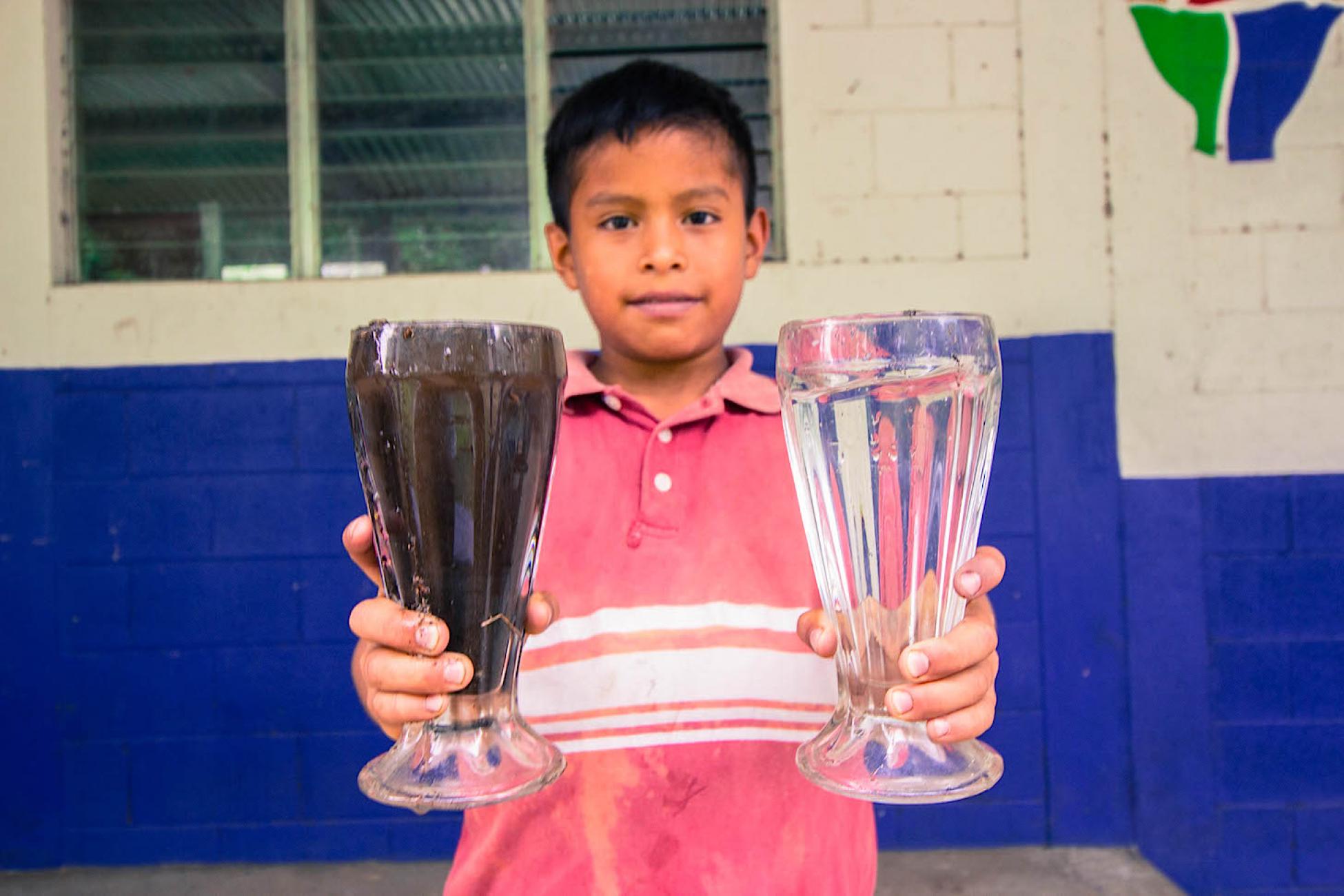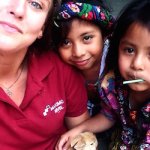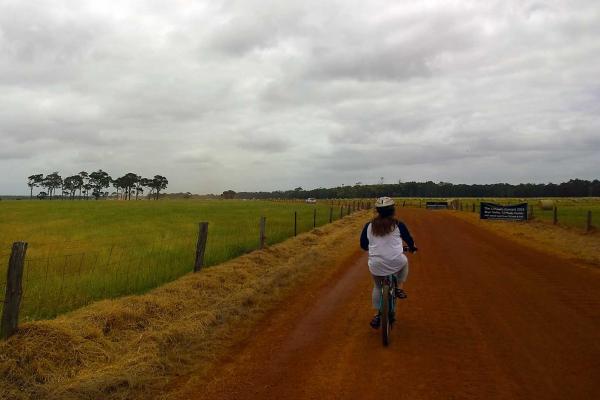We all have different reasons to travel. Maybe your original motivation was to get a tan or to get out of town; or to get over your ex or to run from your student loan debt. But then you get comfortable and learn the language; you talk with the locals and listen to their stories, and suddenly a trip becomes something much more.
To go back to your regular life feels like betrayal to the person you were when you were away. How do you go back to paying five dollars a day for a coffee or $100 dollars for a haircut? Many people that I've met in Guatemala can't—and they don't. They try to return to the big cities and their office jobs, but like a nagging Jiminy Cricket that won't let them forget, the ghost of who they were lingers and eventually drags them back.
The people I find myself surrounded by in Guatemala are all on the hunt for a similar thing: a way to make living here a sustainable reality. How do you find a balance between the person you were at home and the person the country has turned you into? Furthermore, how do you find a livelihood that can support you as well as contribute to the community?
I found some answers to these questions when I met four friends from Zaragoza, Spain. Although discovering new places and people will always change you, Jorge, Chechu, Diego and Edu have found a way to make their travels change the lives of others. In January, they began a journey from California to Peru, with the goal of delivering water filters to rural communities throughout Latin America.
It took struggling to carry a gallon of water through the streets—sweating and tripping on cobblestones—to really appreciate the convenience of running water.
When I was growing up in British Columbia, the water I drank from the tap was the same water that a company from Vancouver bottled for resale throughout the province. It never occurred to me what a luxury it was, and I certainly never thought it would be one of the things I missed the most about my childhood home. (It took struggling to carry a gallon of water through the streets of Antigua—sweating, tripping on cobblestones and cursing—to really appreciate the convenience of simply turning on the tap.)
The four men—best friends since they were little kids—always dreamed of creating something together. Like me, they were drawn to the culture and people of Latin America; they recognized it as a beautiful place with a broken infrastructure and decided to start The WaterVan Project. A non-profit organization, the WaterVan Project works with local partners in Central and South America to deliver the tools needed for clean drinking water to the communities who need it most.
After a year and half of planning, weekly Skype meetings, and seeking funding and sponsorship, the team finally hit the road. But the water crisis was even bigger than they initially realized. It was so severe that in the Chiapas region of Mexico, two communities were fighting with guns over a wellspring a few months before the team arrived.
Since then, they've delivered filters to communities in Mexico, Guatemala and Nicaragua, which will provide clean water for upwards of 2,800 people.
When I met these guys and learned about the project, many questions ran through my head: Why didn't I think of that? Do I have friendships that could withstand travelling together in a van that long? Can I come with?
So, as the curious do, I asked. They were kind enough to provide me with answers and insight into life inside, outside, before and after The WaterVan.
What were you doing before you started this project?
WV: Before starting, Chechu was travelling the world and documenting his trips. He studied law, but redirected his professional career to photography and video editing. Diego was working in Madrid for Amazon, but studied Architecture. Edu and myself were in San Francisco; after doing a postgrad in Berkeley, he was working in finance as an analyst and I [Jorge] was working in tech as a product manager.
What was the initial response from family and friends when you shared your plans?
WV: People couldn't believe we were actually going to make it happen; pull the trigger and truly quit our jobs and put all on the line for this project. Back in Spain, people pushed more for letting the dream go. In California, people were more supportive. But we never listened to the people who said we were crazy or reckless, we were so sure we could do it and do it well. We were truly committed.
Once the idea started taking shape and was more defined, plus we starting creating content and material we were going to use for the launch and staff, people began to see that we were actually going to make this happen.
We ended up raising more money than expected, so we included two more projects to the initial plan: we were aiming for $25,000, but we raised $42,000.
Where did the inspiration for the project originate?
WV: We wanted to start something on our own from scratch, to keep exploring the world, travelling and learning from different cultures and people. And, most importantly, we wanted to give back some of the luck we have had in this life, to help others and make it a social project providing humanitarian support.
The main reason we focused on Latin America was because we did some research and found out how big [the problem] was and how crazy the numbers were. Sixty million people don’t have access to drinkable water in Latin America, and 100,000 people die because of this problem every year.
We also picked this cause because we knew about this filters that were a perfect fit for our purposes: easy to install, easy to use and maintain, portable and good quality.
What has been the response from the recipient communities?
WV: At first, the communities can't believe why we are there and why we picked them. Almost immediately, we are like their family. It is very fulfilling and one of the main reasons this project is so special.
While travelling through Latin America in a van may have a glamorous connotation to fellow travel fiends, it's not all sing-alongs and sunshine. You’ve had to deal with mechanical issues, as well as the infinite uncertainties of Latin American highways, but have there been any tense moments within your group?
WV: Almost every week there is a tense moment between us; there is a lot going on. It's a small living space that we've all had to to share for now four months. There is a lot work to do to keep the documentation up and to do our job well in the communities, and there is a lot of ground to cover so a lot of travelling and uncomfortable sleeping.
It is all physically and mentally exhausting, so it is very tough—but it is such a pleasure to overcome all these challenges and tense moments. It is also very important that we are best friends because we have the ability to say it all, argue, and let out the good and the bad things. Hours later, it is almost like nothing happened and we are already moving on to the next thing. Every day is a learning experience.
Will this trip change any of the plans you had for the future?
WV: For sure it will. Some of us have our future moves more clear than others but in general this project is definitely changing how we approach our next steps in life.
At some point, I will stand in my parent’s kitchen again, and turn on the tap and drink the cool water, but it will never taste the same. Why are some of us granted these luxuries and others not, just because of where we were born? While water is one of the most severe issues at hand, what about literacy, health care, the opportunity to travel and become educated in another country? What if you could help, too? If you have been lucky enough to understand another part of the world, you owe it something.
Don’t listen to people who say your dreams to make a difference are unrealistic or that your plans are reckless. After all, to many, at the beginning, the WaterVan's dream of “drinkable water for everyone” seemed too big. If these four friends had listened, the lives of the thousands of people who they have already helped would remain unchanged.
Add this article to your reading list




